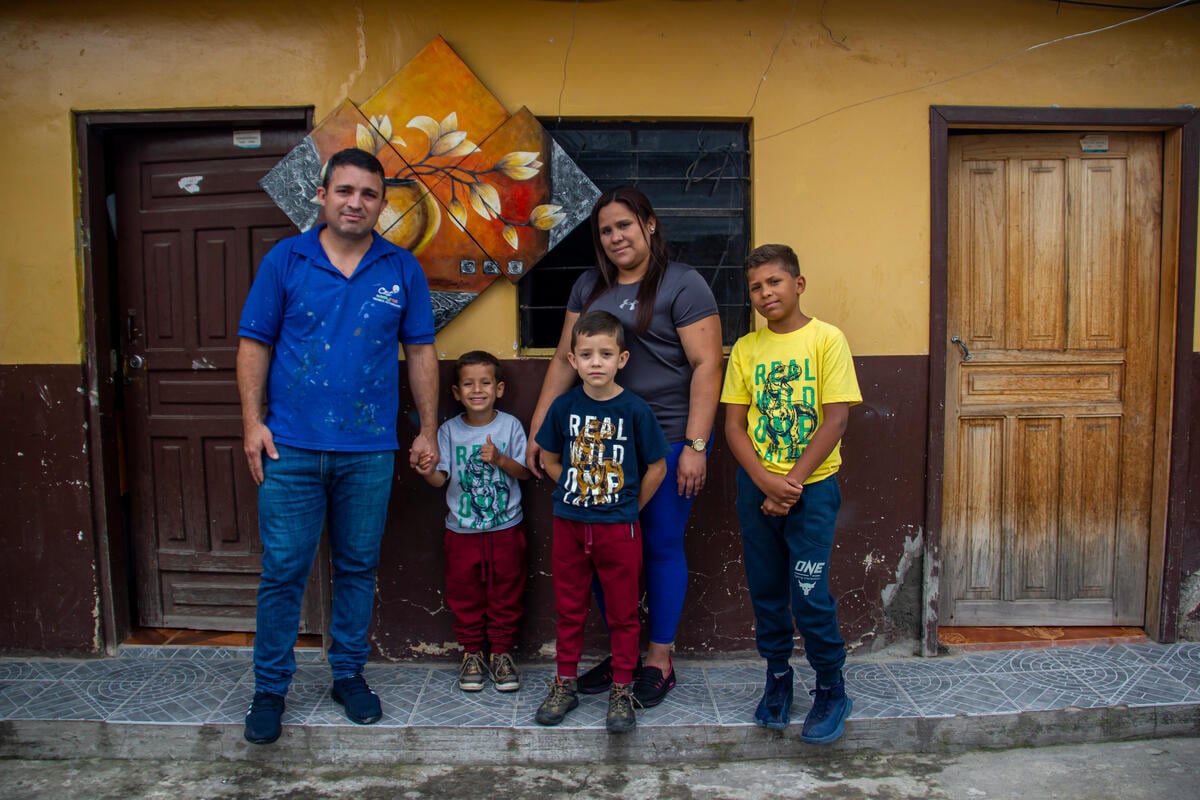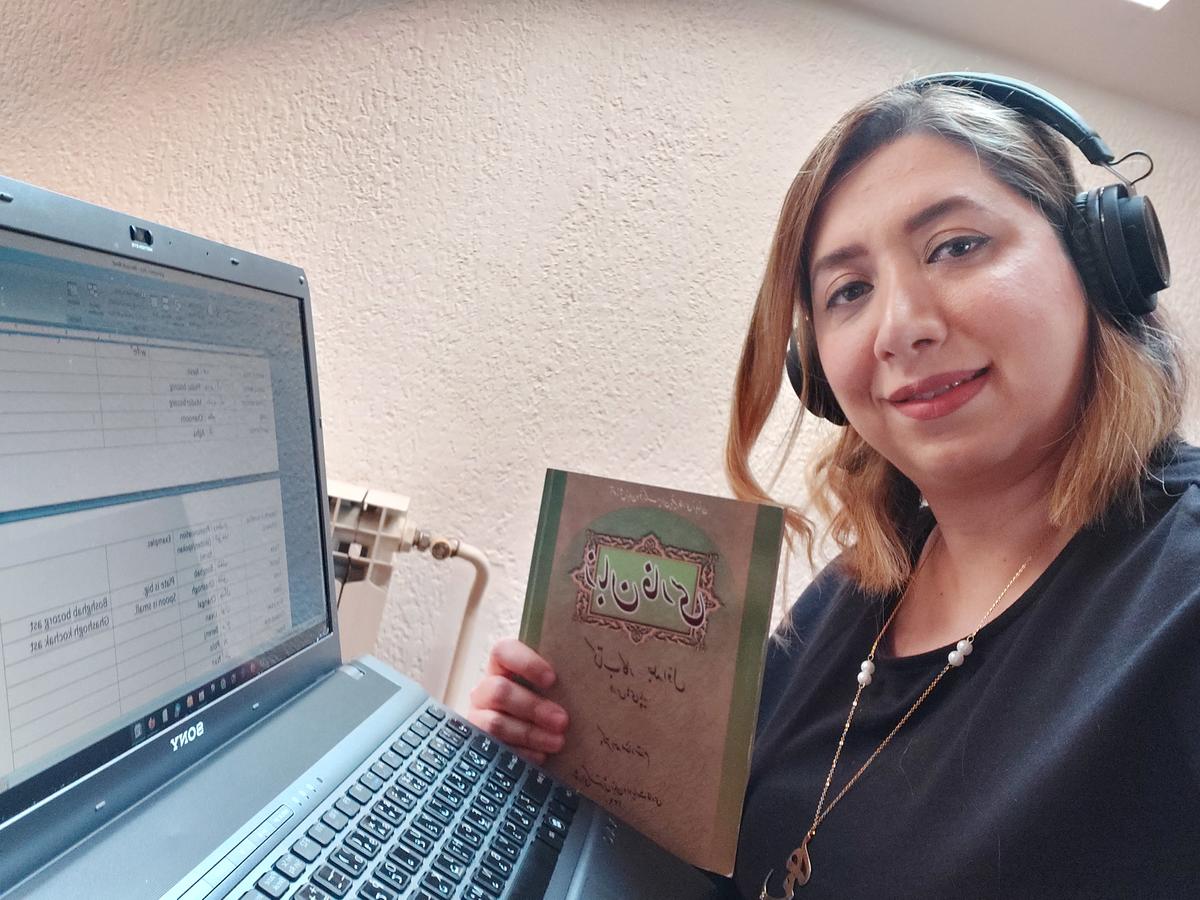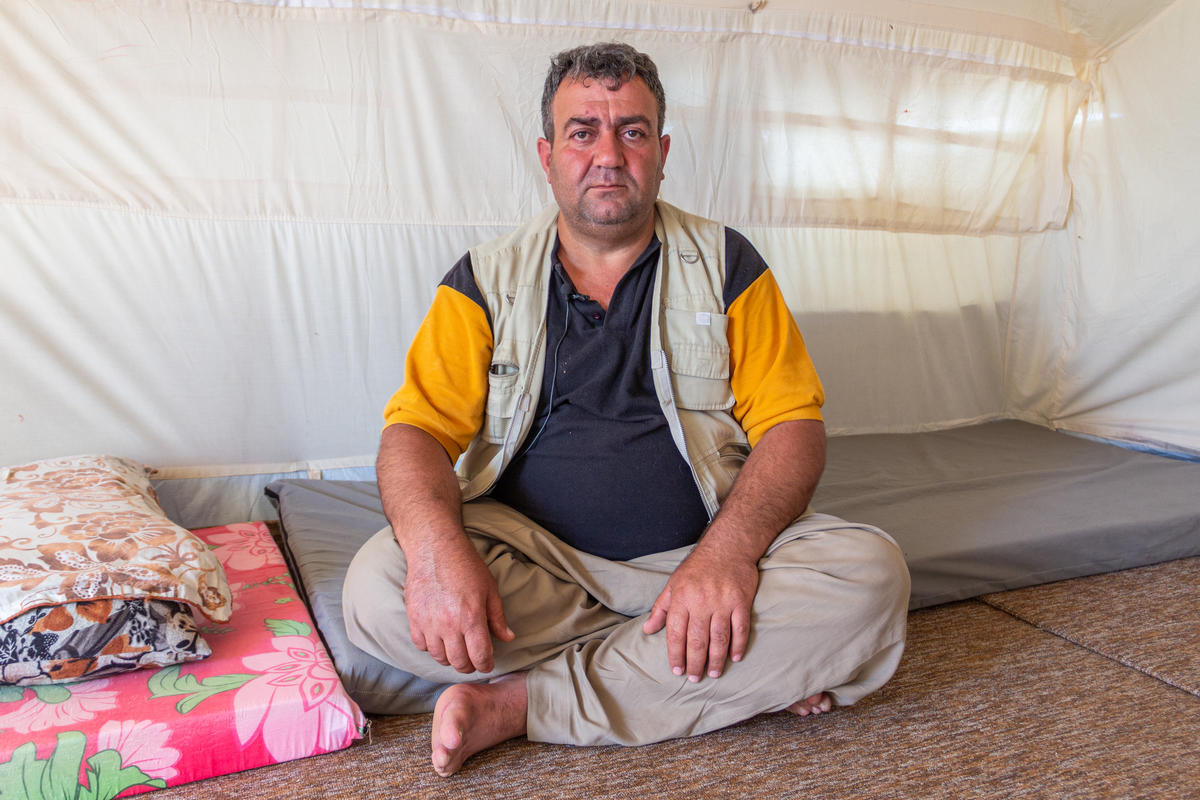'Sewing' the seeds for return after Pakistan quake
'Sewing' the seeds for return after Pakistan quake

BATAGRAM, Pakistan, April 25 (UNHCR) - A group of women huddle in a communal tent and talk animatedly about the newspaper cuttings they have just formed into designs. Another group sews pieces of brightly-coloured fabric into children's clothing, stitching their way toward what they hope will be a better future after they leave Meira, what used to be the largest relief camp in Pakistan's earthquake-affected area.
The sewing class is one of several vocational training programmes funded by UNHCR and run by the International Catholic Migration Commission (ICMC) in selected camps for quake survivors. It aims to help reintegrate them into their home communities as independent, motivated individuals after they leave the camps and return home to resume their lives.
"Through this programme, we've been able to train people who come from extremely harsh economic situations and who will now be able to take the knowledge and skills they've acquired to their home villages," says ICMC project manager Karen Smith. "Vocational training skills can give some of the young women greater opportunity for a productive life once they return to their home villages."
For 25-year-old Gul Fareezon, born and raised in a remote village a few hundred kilometres away, learning how to operate a shiny sewing machine is the fulfilment of a dream. She lost her parents and brother in the quake, and wants to "keep busy by working". Asked what she plans on doing with her new skill, she says, "I will make clothes for myself and my three children because I don't have money to spend on clothes."
Classes last five hours per day and are completed in a week. From the outset, the women are keen to hear the whirr of sewing machines, but they have to learn the basics before moving on to machine work. They express their creativity through coordinating designs and colours. Some of the women incorporate traditional tribal designs and patterns into their work.
"It's important for them to see that they can create designs that are beautiful," says one of the trainers. "This helps them develop confidence that they are human beings of equal status with all other human beings."
Zabar Nisa proudly displays her design for a short-sleeved shirt and points to her name on the newspaper cuttings. Bibi Hawa, a middle-aged widow, says she is thinking about selling the clothes in the market. "I lost my children in the quake and I am poor. With the sewing machine I'm getting I will learn how to earn a living and support myself."
A total of 123 women participated in the sewing classes held in Meira camp last month. They learnt a craft that will help them achieve a measure of financial self-reliance and social independence in a male-dominated society. After completing the course, each of them received a sewing machine worth about 2,000 rupees (US$33). Some of them plan on using the machines for small business initiatives in their home villages when they leave the camp.
About a third of the graduating classes are extremely vulnerable people - widowed, traumatised or still mourning the loss of loved ones. Through the work and the atmosphere of respect, they have gained comfort, strength and self-confidence.
Tahira lost both her sons and parents in the quake and her home was destroyed in the landslides that followed. She says that interacting with other female survivors in the vocational training classes has been a healing process for her.
Men, too, are included in the process. Based on their feedback, ICMC is offering reconstruction-focused classes in electrical works, plumbing, carpentry and masonry. Asked why they are participating, the men emphatically explain, "We were accustomed to spending our day in the fields, farming, and we want to learn a craft that will help us sustain ourselves until we rebuild our homes and rehabilitate our lands for agriculture."
Each participant receives a relevant toolkit which they will be able to use immediately to rebuild their lives and homes upon return to their villages. A total of 340 toolkits were distributed to male participants during last month's round of vocational training courses in Meira camp.
Master-trainers for the courses are selected from the camp population. The trainers were skilled professionals before their lives were disrupted by the earthquake.
"I can earn my livelihood when I go back to my village through this new skill. There is no land to farm anymore," says Abdel Rahim, one of the participants of the plumbing class, recalling how the mudslides have made his land unsuitable for farming.
"The men who've been trained are going to return to their communities and share what they've learned," explains the master-trainer of one of the electrical works classes. Four men in his class are planning to pool their resources together and open their own electrical shop in their home village. "No one has looked at how we are going to feed our families in the long run, these skills will help us do that," said one of them.
A new round of vocational training courses for both men and women began earlier this month in Meira camp and another 80 women are participating in the sewing classes. The women are abuzz with hopes and expectations, as are the camp managers.
"I hope that returnees will act as ambassadors and will spread what they've learnt in areas of return," says Colonel Fraz, who runs Meira camp. "Women were previously treated and lived as slaves. Here at the camp they're learning and children are going to school."
Six months after the earthquake of October 8, more than 80,000 quake survivors have left camps for home. Over 40 camps have closed as a result. As the lead agency for camp management under the joint UN response, UNHCR is currently supporting the authorities in 112 relief camps housing more than 74,000 people.
Meira camp is one of three camps in this area identified by the government as residual camps for vulnerable people who cannot go home for the time being.
By Fatma Bassiouni in Batagram, Pakistan








